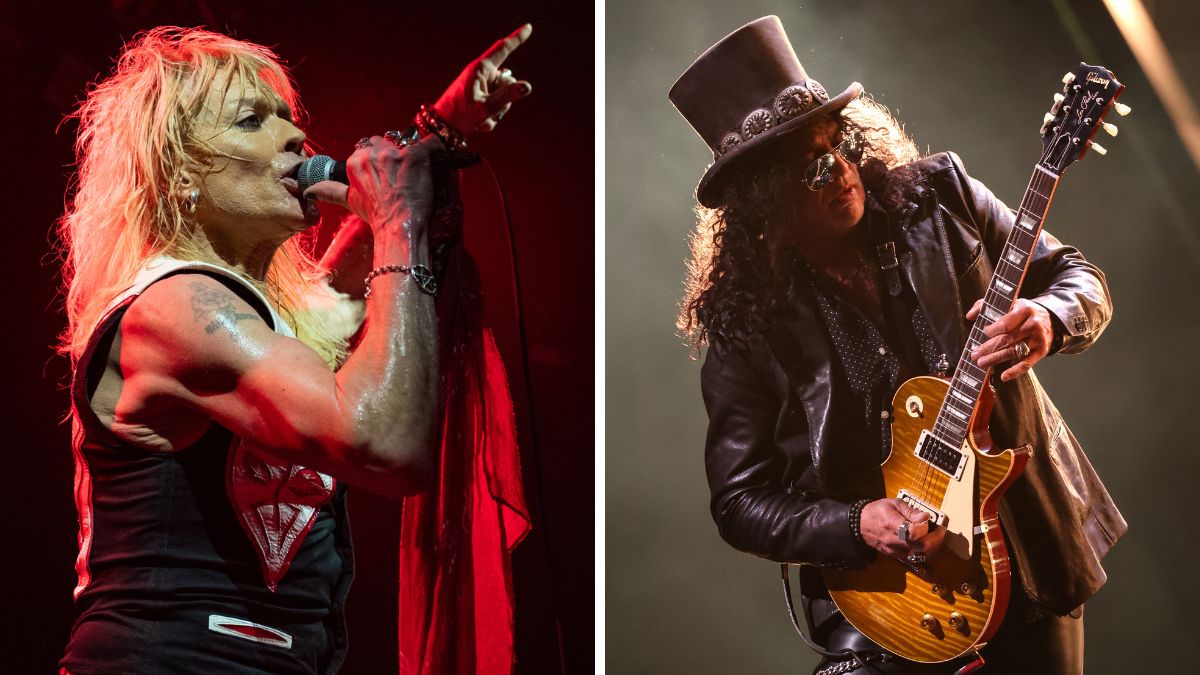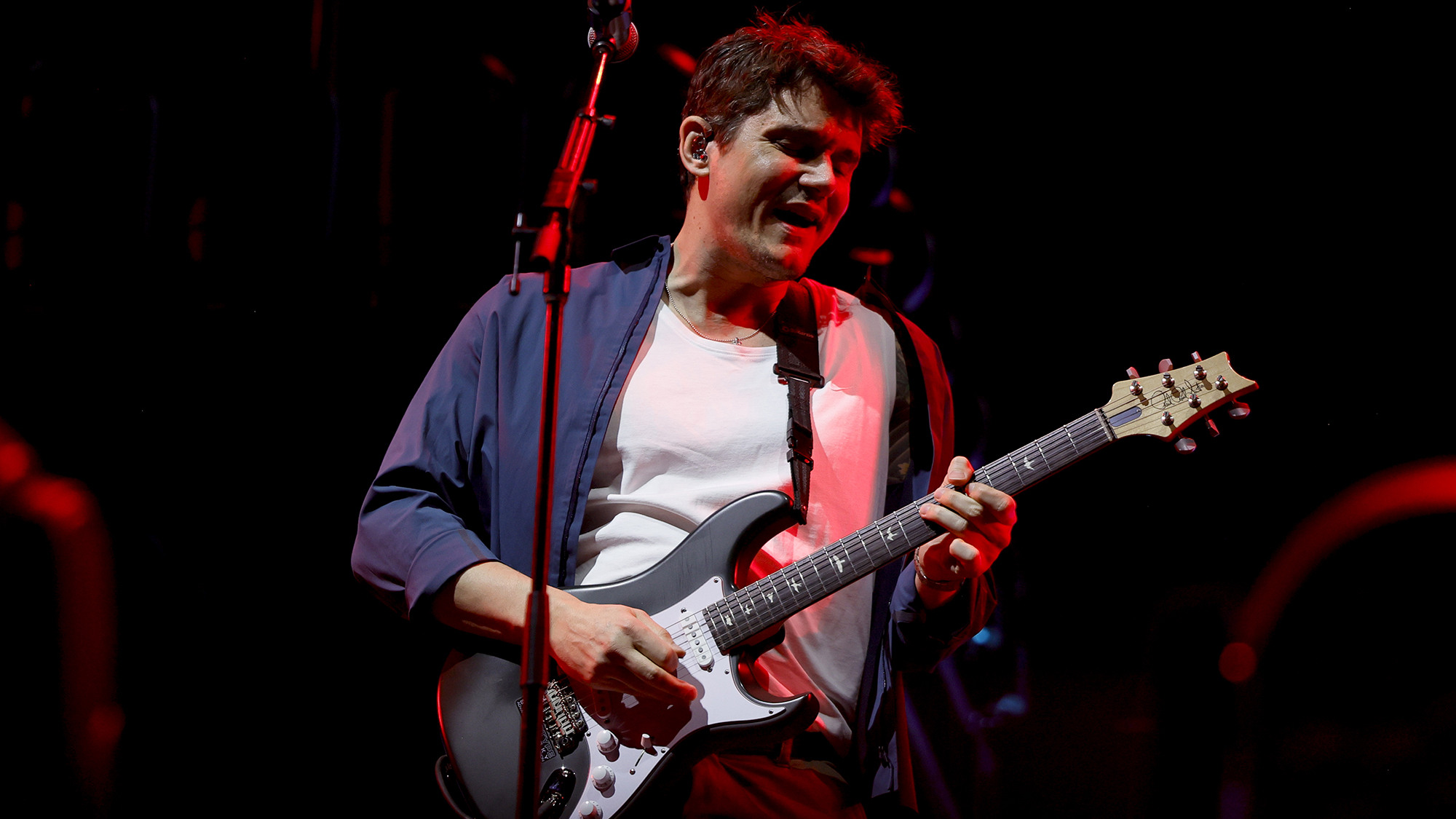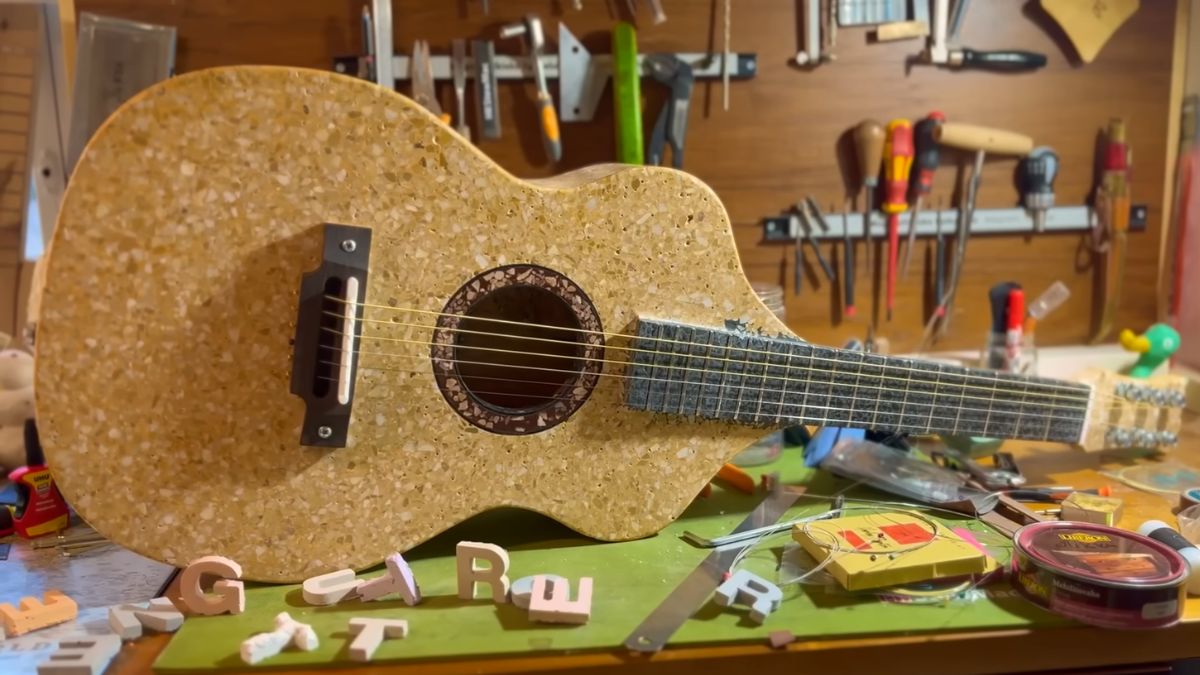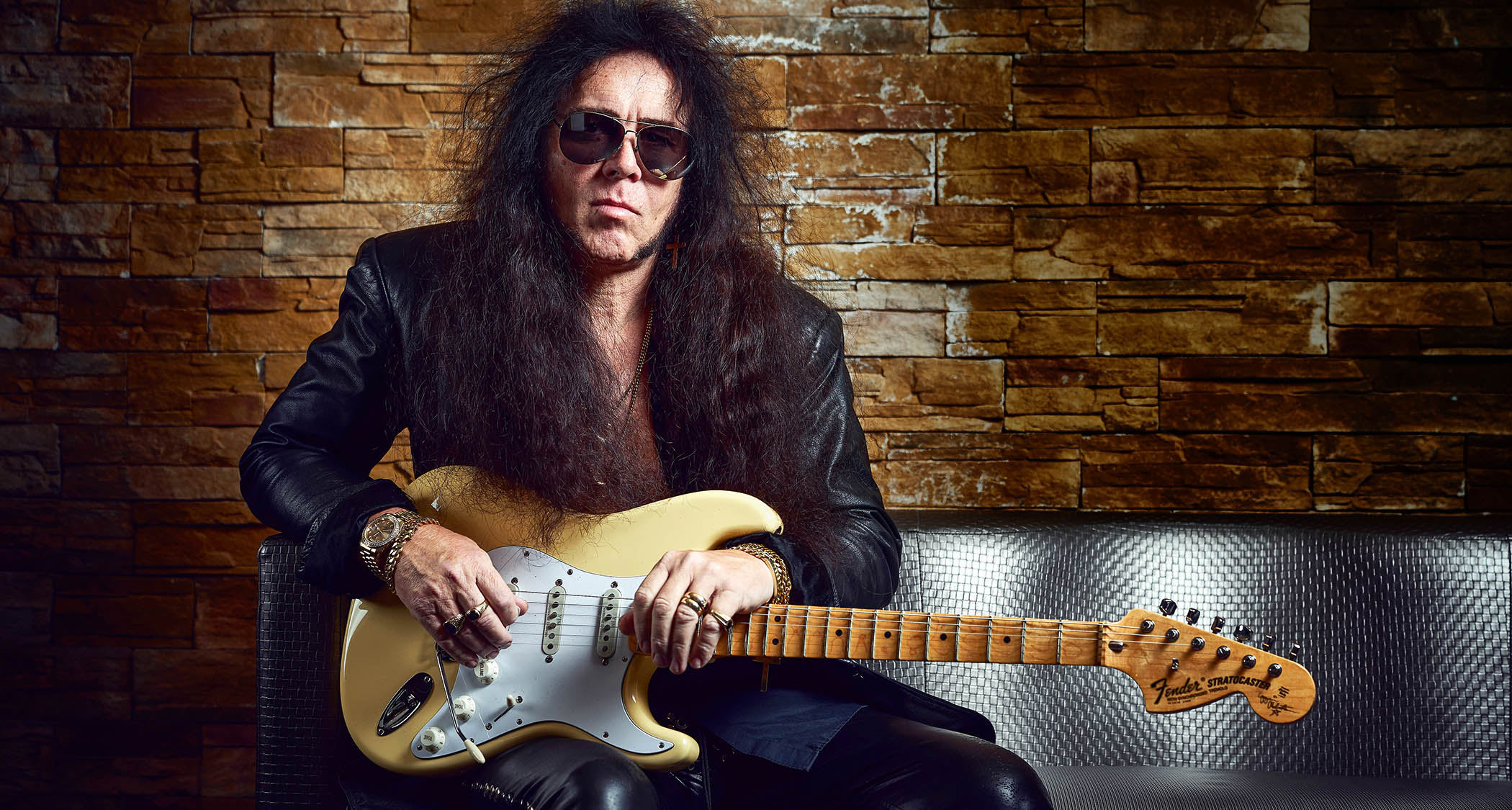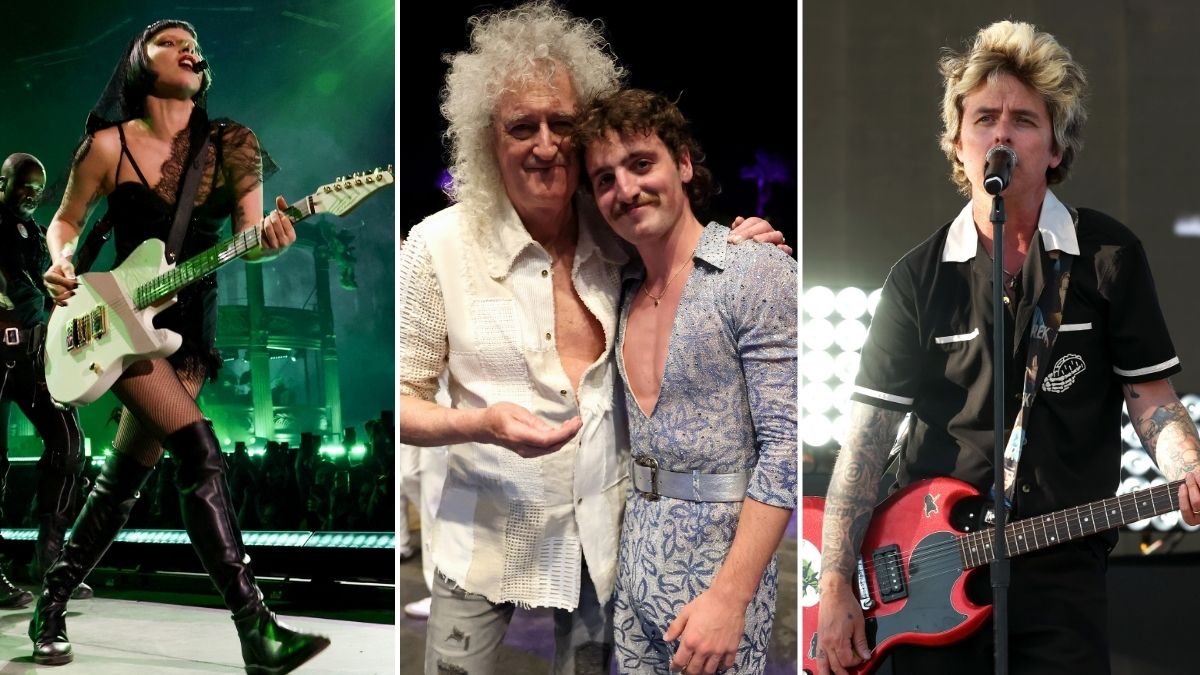Aerosmith's Joe Perry Enlists Legendary Friends on His New Solo Album, 'Sweetzerland Manifesto'
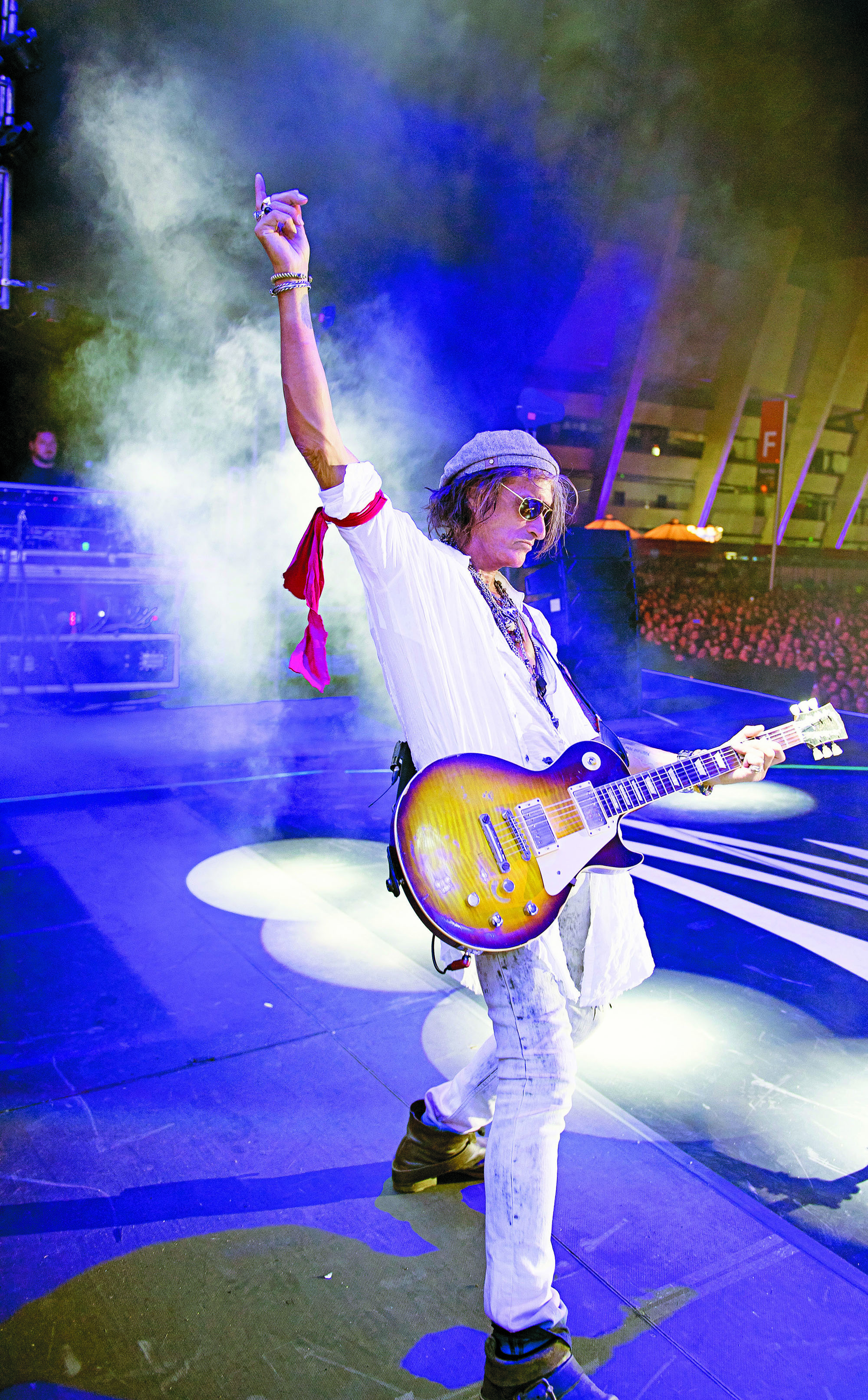
“I’m excited to hear what people think about this record,” says Joe Perry about his new solo effort, Sweetzerland Manifesto. “Because it’s not like every song is just a slammin’ rock song. It’s more spread across the board.”
Indeed, though Sweetzerland Manifesto is the 67-year-old Aerosmith guitarist’s sixth solo album overall, it’s unlike anything he’s done previously. Whereas his past records featured either Perry or another singer as the primary voice, on Sweetzerland he’s joined by a variety of vocalists, and they’re some of rock’s best and most distinctive, from legendary New York Dolls man David Johansen (who appears on “Haberdasher Blues,” “I Wanna Roll” and “I’m Going Crazy”), to Cheap Trick’s Robin Zander (“Aye, Aye, Aye”), to Terry Reid (“I’ll Do Happiness,” “Sick & Tired,” “Won’t Let Me Go”), who, as legend has it, was offered—and turned down—the frontman slot in Led Zeppelin prior to Robert Plant. The guitarist received further assistance from his Hollywood Vampires bandmate Johnny Depp, who served as executive producer alongside Perry and producer Bruce Witkin, as well as drummer Zak Starkey, longtime Aerosmith producer Jack Douglas and Joe’s sons, Tony and Roman.
As far as the music is concerned, the songs on Sweetzerland Manifesto run the gamut from swaggering rock rave-ups (“Aye, Aye, Aye,” “I’m Going Crazy”) to exotica-tinged instrumentals (“Rumble in the Jungle,” “Spanish Sushi”) to darker, more R&B-influenced fare (“I Wanna Roll,” “Sick & Tired”), to a cover of P.F. Sloan’s protest anthem, “Eve of Destruction,” made famous by Barry McGuire in 1965 and here sung by Perry himself, with Depp on drums. At the heart of it all, however, is the blues, which has always been Perry’s musical foundation. “Well, I only know a couple of chords, you know?” he says with a laugh. “But, yeah, the blues, it’s just a natural tendency for me to go there. It’s always the cake. I’m just trying to change the icing, that’s all.”
Perry recently sat down with Guitar World to talk Sweetzerland Manifesto, his gear (including the custom guitars he used to record the album), and what’s on tap for Hollywood Vampires and Aerosmith.
Your last solo effort, Have Guitar, Will Travel, came out nine years ago. What led you to do another album now?
It’s actually been kind of a work in progress over the last few years. Between the Aerosmith tours and then the [Hollywood] Vampires, it was something I would work on when I had time. I think the first track was actually done in 2012. But [in 2017], since January, I had quite a bit of time on my hands in L.A. and I was able to finish it up. I just boiled everything down to what sounded like it would make a good record and I started working on it.
What was that first song you did back in 2012?
Get The Pick Newsletter
All the latest guitar news, interviews, lessons, reviews, deals and more, direct to your inbox!
It was “Eve of Destruction.” Johnny [Depp] and I were talking about a record, and I mentioned it was a song I’d been thinking about covering. So we went in the studio and started fooling around and laid it down. And from there I started working on some other new things. It was a whole different vibe. My last few solo records, I did them down in my basement studio in Boston. And I had a great time doing those, but this was the first time I was able to work in a place where I could have a whole different batch of people come in and play, while still having that same type of situation where there were no time constraints.
How did all the guest musicians come to be involved?
A lot of it was through Jack Douglas. He lives in the neighborhood and we’re good friends. So he’d stick his head in and listen to what I was doing, and talk about this track and that track. And he said, “You know, what would you think about having David Jo [Johansen] come up and sing over a couple of these tracks?” And David and I go all the way back to the Dolls days, to the very beginning of our careers. So I said, “Yeah, if he’s into it, that’d be great.” I’m always excited to hang around with David. And he came in, picked a couple of tracks and said, “Let me have a go at one or two of these.” So we spent the better part of a week and we turned some of these songs into what they are. One of them, “Haberdasher Blues,” that came at the end of the sessions. We went in and jammed, and I think it went on for about eight or 10 minutes and we edited that down into a more reasonable piece of music.
Then the next thing I know, Jack is suggesting Terry Reid, who I think lives out in Palm Springs. I had never met him before, and I really didn’t know he was out there still singing and performing. But he came in, picked out a couple of the tunes, went back with Jack to work on some lyrics and then laid down some tracks. So it was kind of like that. There wasn’t a plan to go out there and work with a bunch of different singers. It was more like the music kind of led the way.
Between Terry, David and Robin, you have possibly three of the most powerful voices in rock history on this record.
Yeah. I have to agree with you. When Terry opened up, I was really blown away. I was knocked out. So it was really a lot of fun. After David did his stuff it started to feel like, okay, this is the kind of path we’re going to go on…
What did Johnny Depp bring to the sessions as executive producer?
He was in the studio a lot and he always has really creative ideas. As the tracks were coming to completion he would come in and make suggestions. And again, it was him that suggested I do the record, and at his studio. It was right around the time I was finishing up the book [Perry’s 2014 autobiography, Rocks] and he said, “I’d really like you to do your next solo record, if you want to, up at my place.” So he was really an important part of this happening at all. But again, he would come in and have suggestions, and sometimes it would be a harmony, and sometimes it would be a thing that really glued the song together. He helped to kind of guide the whole picture. It certainly wouldn’t be the record it is if it weren’t for him. I wouldn’t have even started doing it if he hadn’t suggested it.
You also have your sons, Tony and Roman, on the record, adding synth and drum programming to the instrumental track “Spanish Sushi.”
Yeah. As you can imagine it’s a lot of fun working with them in the studio, and watching how the two of them work together. Because they come at it from different angles. And I certainly kept my hands off the steering wheel to hear what they had to say. And I think that song, I feel like there’ll be a lot more like that coming down the pike.
What was your main guitar and amp setup in the studio?
TV Jones has made a couple guitars for me, and Gabriel [Currie] at Echopark has been making some guitars for me. I used those on the majority of the tracks. Then there were a couple of Strats—that left-handed, burned-up one that I’ve had for almost 20 years now, I used that a lot. There’s also a few Gibsons—I know that the ’59 [Les Paul] reissue was one that I played. But mostly it was those custom-built Echopark and TV Jones guitars. I cut some of the best stuff with those. Then for amps, for the most part I was using the Supro Black Magick. We had a setup that worked pretty well where we had, I think, a Marshall out in the live room and then a Black Magick going into an isolation box with a 12-inch speaker. And that was pretty much it. I think the variety of sounds mostly came from the guitars.
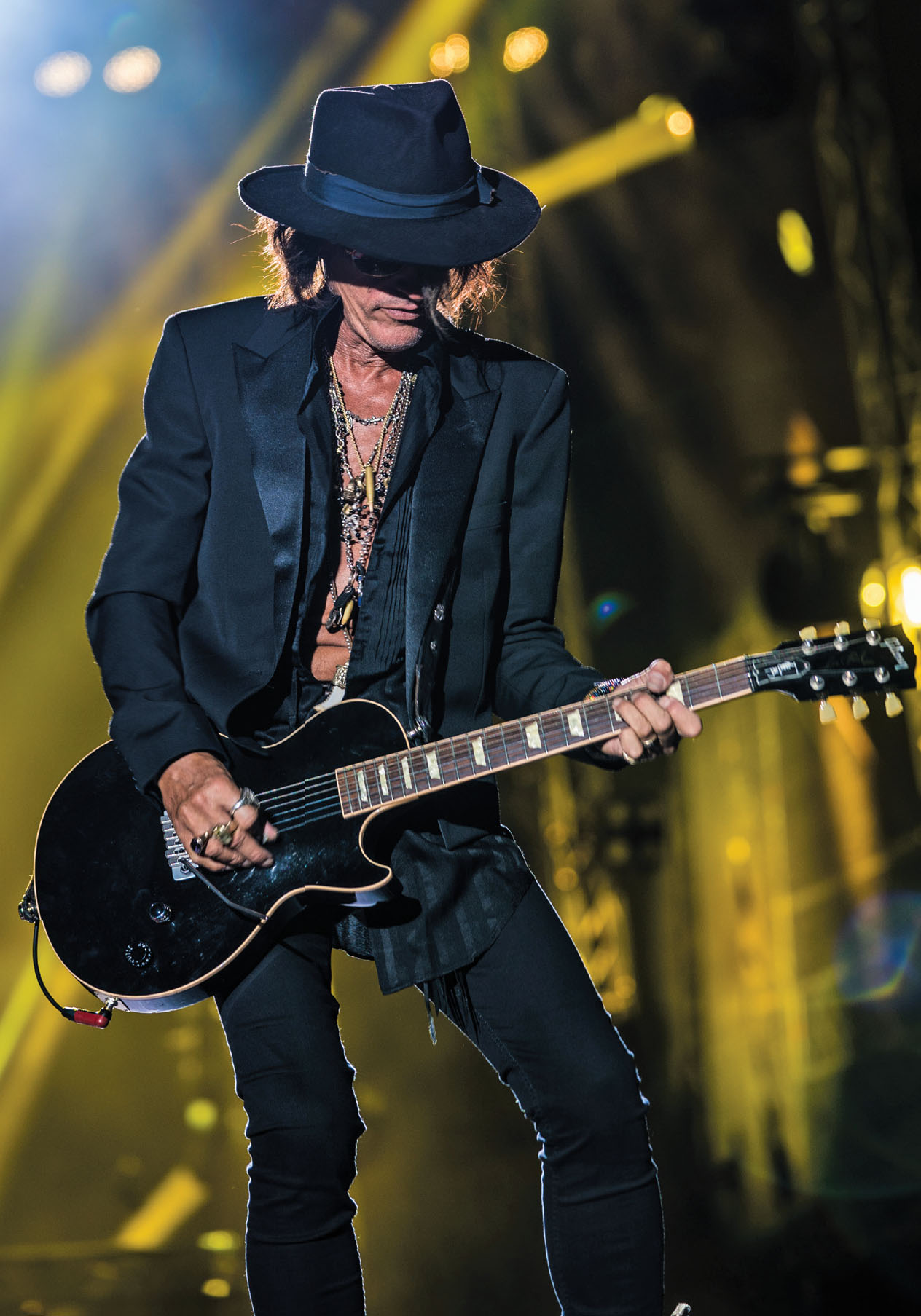
How about effects?
I always have the Klon [Centaur]. Mine is one of the original ones—Brad [Whit-ford, Aerosmith guitarist] and I were each given one when they first came out. And it’s still a mainstay for me. So that would be in there. And I had a [Electro-Harmonix] POG and an old DigiTech Whammy Pedal, and also a variety of fuzz pedals. Once in a while I would just plug something different in.
Are you planning to tour behind Sweetzerland Manifesto?
I’d like to. I’m really excited about playing these songs live. When, I haven’t figured out. Because right after we release the record we’re going to start working on a new Vampires record. Or at least that’s what we have on the calendar right now. And then we have a Vampires tour booked in Europe in the early spring. But there’s definitely going to be some time later in the spring and the summer that I could go out with a band. So we’ll see. But the short answer is yes. I just don’t know when yet.
What do you like about doing the Hollywood Vampires project?
It’s just loose and a lot of fun. And the guys are great. Johnny’s a really good guitar player and he’s got a lot of good ideas. He’s always writing and he’s always got a guitar in his hands. And he loves blues, he knows all the stuff, and he loves to play live and to be part of a band. And Alice [Cooper] is one of my favorite rock singers. He’s probably one of the most easygoing guys you’d ever want to meet. And it’s funny because when I first really sat down with him on a couch with a guitar in my hands, I think it was right around the time Aerosmith got back together. So we’ve been friends for quite a while and I’ve always liked his whole attitude about rock and roll and everything. So when I got to play on the Vampires record it was a lot of fun. And they asked if I wanted to go out on the road with them, and there you have it. It’s guys that love to play rock and roll, and there are no rules. It’s a really cool hang and it’s all about creativity.
Also, another very important element to that band is Tommy Henriksen, who is Alice’s right-hand man. I know people don’t know him as well as they would know me and Johnny and Alice, but he’s an integral part of the Vampires. And he’s a really good songwriter as well. I don’t know, when we’re all in a room together it just seems to work.
You’ve been out on the road recently with Aerosmith, and there’s also been some talk about the band possibly doing more recording. Is that happening?
There’s really nothing on the calendar at the moment. We’re actually planning a residency in Vegas. And we’re gonna do something a little different from what I’ve seen other rock bands do that go in there and have that space where they don’t have to tear things down after every gig. That’s taken quite a bit of planning. So that’s what’s going on with Aerosmith. I don’t know if we’ll actually get in the studio to cut something new, but we have talked about it. I really have no idea.
Would you like to do another record with the band?
At some point I’d like to. But like I said, creatively our sights are aimed toward performing these songs. Some are songs we really haven’t played much, or it’s been a long time since we played them. The show will include all the hits, but there are other songs we want to bring to the stage, too. We’re not going to deviate from what we do, which is go up and put on a rock and roll show. But at the same time, we’re going to make it an experience you won’t be able to see anywhere else.
Rich is the co-author of the best-selling Nöthin' But a Good Time: The Uncensored History of the '80s Hard Rock Explosion. He is also a recording and performing musician, and a former editor of Guitar World magazine and executive editor of Guitar Aficionado magazine. He has authored several additional books, among them Kurt Cobain: Montage of Heck, the companion to the documentary of the same name.


